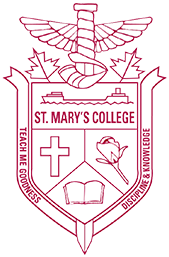Independent Living Skills I, II, III
- may be coming from self-contained programs or an integrated setting
- will benefit from a smaller student – teacher ratio
- are working on personal goals as outlined in their Individual Education Plan
- are functioning well below age level academically
- often have difficulty socially and have low self-esteem
- are tactile and experiential learners
- may require additional support in relation to behaviour, personal, physical or emotional needs
- Educational Assistants may be available to support student needs, as necessary
Personal Health and Fitness (KPF)
The students will develop an understanding of the importance of being physically active and participating on a regular basis in physical activities that maintain and improve physical fitness. We will emphasize regular participation in a variety of physical activities that promote lifelong healthy active living. Students will explore ways of improving personal fitness and preferences. An emphasis on teamwork, positive social interaction and healthy relationships will also be a focus.
Personal Life Skills (KGL)
The students will focus on building self-awareness andself-regulation. They will also focus on setting goals in relation to their IEPs.
Exploring Our World / Choice Making for Healthy Living
KCW / KPH
The students will be encouraged to explore options within our
communities that will meet their personal news and preferences. They will also work on developing healthy eating habits, recognizing safety risks and demonstrating safe practices. Numeracy & Numbers / Language and Communication Development KMM / KEN Students will work on maintaining and building practical
academic skills relevant to their personal goals as outlined in their IEP.Functional Skills
Students will work on maintaining and building practical academic skills relevant to their personal goals as outlined in their IEP.
Each student will have a set of goals as part of their Transition Plan, established in cooperation with the school, parents / guardians, and any community partners. It will be those individual goals the students will work toward, and on which assessment will be based. Provincial report cards will be distributed at the same time as all other Secondary students. Parents / Guardians are encouraged to attend the school wide scheduled interviews to set goals for the next reporting period. Active home involvement is a key element to the success of the students in Specialty Programming at St. Mary’s College.
- Students will follow all St. Mary’s College routines and schedules
- They are welcome, and encouraged, to participate fully in all extracurricular activities and clubs
- They have the same breaks and lunch as all students of St. Mary’s College
- Students participate fully in all school sanctioned activities
- Students are expected to adhere to the same code of conduct as all SMC students
- Students are able to remain in the programs until 21 years of age
- Students are encouraged to participate fully in graduation activities and ceremonies
- Opportunities for integration are available based on individual student goals and needs
- Most students will receive a Certificate of Accomplishment
- Students are not working toward an OSSD
- School, home and community partners will work cooperatively as students prepare for any transitions while at St. Mary’s College
Heidi Zagordo
Learning Strategies (GLE)
- Offered from Grade 9 to 12
- Students can earn credits for up to 6 GLE classes during their time at SMC
- The focus in on building paractical skills and strategies for learning (i.e. time management, organization, student skills, presentation skills, exam preparation)
- This is a highly individualist, student-centered learning environment
- Students accessing GLE programming will meet one-on-one with the lead GLE contact person to select courses (they are hand time tabled to ensure all of their academics and social/emotional needs are met)
- GLE teachers work cooperatively with school counsellors and classroom teachers to ensure success
- GLE teachers act as a liaison between home, school and classroom teachers
- develop a personal relationship with all student in the GLE classes, or on IEP’s
- constantly monitor student progress
- maintain the student’s IEP act as a liaison between student and classroom teacher
- act as a contact person for parents
- meet with students annually to make course selections and make students aware of programs offered
- assist with transition planning into, and out of, secondary
- host annual IPRC &, if necessary, transition planning meetings
Sandra Pelletier
GENESIS Program
- This is a Care and Treatment program
- Students intake into this program via AFS – available to HSCDSB and ADSB students
- Provides clinical staff as well as a classroom teacher
- Focus is on supporting students struggling with addictions
- This program is housed off site
David Sdao
Phoenix Program
- This is a Care and Treatment Program
- Students intake into this program via AFS – available to HSCDSB and ADSB students
- Program provides clinical staff as well as a classroom teacher
- It is geared toward students who are experiencing difficulties with their emotional, social and behavioural development; often to the extent that they are unable to function within the regular school programs
- Programs are adjusted to meet the daily needs of the students
- Mental health is the priority, however, whenever possible students work toward earning credits
- Students in Phoenix attend in class at St. Mary’s College
100 Ontario Ave, Sault Ste. Marie, ON P6B 1E3
P: 705-945-5400 • TF: 1-800-267-0754 • F: 705-945-5575 • frontdesk@hscdsb.on.ca
Contact Us
868 Second Line E.
Sault Ste. Marie, ON
P6B 4K4
